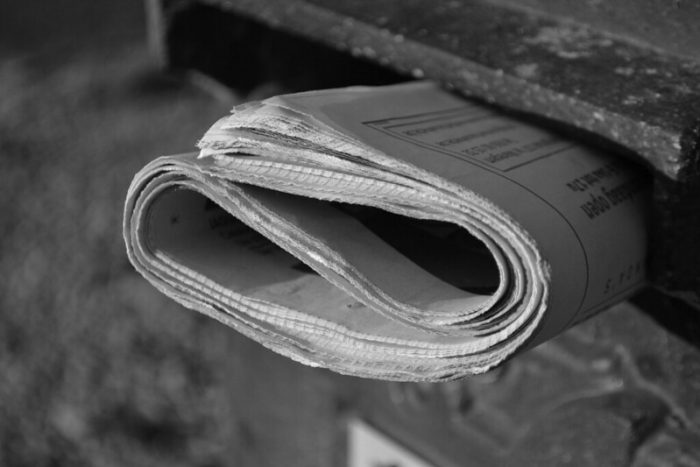
One of the surprising effects of a local election — specifically a gubernatorial election — seems to be that the demand for the local newspaper associated with the winning candidate’s party goes down after the election. Or so a new study finds.
The work builds on previous research from Allison Archer, an assistant professor in the University of Houston’s Department of Political Science and the university’s Valenti School of Communication. As part of her graduate course work, Archer found that demand for newspapers affiliated with a winning presidential candidate — newspapers that lean in the direction of the candidate’s political party — goes down after the candidate wins the election. “A lot of research on media is about how it might affect public opinion or election choices,” said Archer. “But this is thinking about that relationship in a different way, about how politics might affect us [in media] and media demand.”
[Read: When local newspapers shrink, fewer people bother to run for mayor]
The study, published last week in American Politics Research, was done in collaboration with Joshua Darr, an assistant professor of political communication at Louisiana State University. Darr, who heard Archer speak about her research on presidential elections and local newspapers at a talk, was intrigued and wondered if a similar effect would be found for gubernatorial elections. Presumably, they thought, elections for state governors could show a more direct impact on local newspaper demand, given the more local nature of these contests. “Gubernatorial elections often are associated with different people gaining or losing their jobs, and different programs being implemented or disabled,” Darr said.
So, they set out to find out. They submitted several interlibrary loan requests, Darr said, to find 70 years’ worth of circulation data about local newspapers in Virginia and New Jersey. They chose these two states because they are the only ones in the U.S. that have gubernatorial elections in years without a Congressional election or a Presidential election.
What they found was that, regardless of political party, if a particular candidate won the governor’s seat, that person’s affiliated newspaper saw subscriptions go down after the election.
Why? “One potential explanation is anxiety of a loss,” Archer said. “Anxiety in general increases information-seeking.” So, those who were rooting for the losing candidate might be motivated to increase their media consumption in order to better inform themselves for the next time around or for possible explanations for why this happened.
“People get interested in the election and get an emotional or psychological benefit from their side winning,” Darr said. At the same time, if you’re on the winning side, “You might disengage relative to those with the opposing party, which now feels threatened,” and therefore more likely to plug back in. It’s similar to how MSNBC saw a surge in viewership after Donald Trump won the 2016 presidential election, Darr explained, or how Fox News experienced a rise in viewership during the first years of the Barack Obama presidency.
One of the other findings, however, was not so immune to political affiliation: Demand for independent newspapers seemed to surge following a Democratic candidate’s gubernatorial win, and the shift also occurred largely among Democrats.
“They’re not seeking out partisan affiliate newspapers as much, but it’s not like their interest is completely dead,” Archer said. And while this study didn’t measure this, the trend seems consistent with other findings that have more broadly found that Republicans don’t seem as interested in mainstream news as Democrats. “And that’s why there might be some of these partisan signals and patterns,” Archer suggested.
In some ways, this study is largely historical in nature because the data included only go up to 2005, before the decimation of local newspapers began in earnest. In 2021, few communities have two local newspapers. “It’s hard to say how the study’s findings would translate to today’s landscape,” Darr said. But, he and Archer suggest in the paper, hyperpartisan local news sites could be a future area of focus.
Future research could examine if newspaper content—in print and online—shifts to retain or attract new audiences following a gubernatorial transition. In-depth interviews or surveys of editors and journalists could also be conducted to assess news professionals’ awareness of these dynamics. And as the local media landscape continues to become more populated with partisan news websites, future work examining how state-level elections affect consumption of these local partisan outlets will be needed.